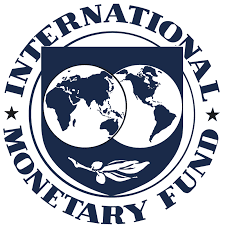 |
Nigeria’s economy remains vulnerable, though policies and favourable oil prices have helped it to overcome a recession, the IMF has said.
Disclosing this position yesterday, the International Monetary Fund (IMF) noted that the economy was yet to receive boost from policy implementations that could make it withstand the shocks that previously pushed it into a recession.
The organisation described lower oil prices and high interest rates as the main downside risks, while insecurity, delayed fiscal policy response, and weak implementation of structural reforms make up the domestic perils.Explaining its verdict at the end of an economic review of the country, tagged : ‘2018 Article IV,’ the IMF admitted that new reforms under the Economic Recovery and Growth Plan have aided the business environment. It, however, said they have not impacted substantially on non-oil and non-agricultural activities, inflation, banking sector vulnerabilities, unemployment and poverty.
According to the review, Nigeria retains its higher fiscal deficit, driven by weak revenue mobilisation, amid continued tight domestic financing conditions that have raised bond yields, and crowded out private sector credit.
The Fund however however warned that rising banking sector risks, possibly caused by huge non-performing loans, deserved attention. They also commended the Central Bank of Nigeria(CBN)’s commitment to help banks increase capital buffers by stopping the dividend payments of weak and most affected ones.
It therefore called for an asset quality review to identify potential capital needs and noted that an enhanced risk-based banking supervision, strict enforcement of prudential requirements, and a revamped resolution framework would help contain risks.
IMF’s managing director and chairman, Christine Lagarde, in her summary of the directors’ views, said new foreign exchange measures, rising oil prices, attractive yields on government securities, and a tighter monetary policy have contributed to better foreign exchange availability, increased reserves to a four-year high and contained inflationary pressures.
“Economic growth reached 0.8 per cent in 2017, driven mainly by recovering oil production. Inflation declined to 15.4 per cent year-on-year by end-December, from 18.5 per cent at end-2016. Higher oil prices are supporting the near-term projections. But medium-term projections indicate that growth would remain relatively flat, with continuing declines in per capita real GDP under unchanged policies,” she said.
Noting that Nigeria would record a growth of 2.1 per cent in 2018, Lagarde said the improved outlook for oil prices was expected to provide relief for the country from pressures on external and fiscal accounts.
This would be helped by the full year impact of greater foreign exchange availability and recovering oil production, even as foreign reserves are tending towards $44 billion.
The IMF projected a reduced growth of 1.9 per cent for the country in 2019. And the non-oil sector will record a marginal increase in Gross Domestic Product from 1.3 per cent in 2018 to 1.5 per cent in 2019, an indication of slow development in the sector.
It further noted that renewed import growth would reduce gross external reserves despite continued access to international markets, and called for urgent comprehensive and coherent policy actions and a growth-friendly fiscal adjustment that focuses on non-oil revenue mobilisation and rationalises current expenditure, to reduce the ratio of interest payments to revenue.
It also urged the authorities to create space for priority social and infrastructure spending and warned that the ongoing efforts to improve tax administration must include ambitious tax policy measures and reforms in Value Added Tax, and rationalising of tax incentives.




